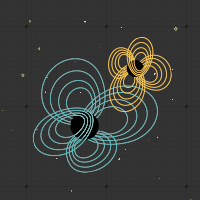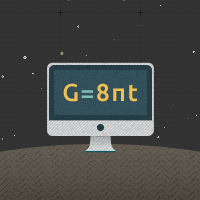I
I
Inflation
A brief period shortly after the Big Bang during which the Universe expanded very rapidly. The theory of Inflation is necessary to make the theory of the Big Bang agree with astronomical observations.
Initial Data
Physicists frequently analyze a physical situation starting at some moment in time, and ignore what happened before that moment in time. To do this, however, they need to understand what was happening at that initial moment. That is, they need Initial Data. This is very similar to using Boundaries, which requires having Boundary Conditions.
Inspiral
The gradually-shrinking orbit of a binary system. As the pair of stars in the binary orbit each other, they give off energy in the form of gravitational waves. This lost energy draws them closer in their orbit — eventually resulting in a Merger.
Interference
A phenomenon which can occur any time there is any type of wave, which amounts to two waves canceling each other out. If two different waves meet at the same place, and one would hit its peak while the other would hit its trough, the waves will cancel, and there will be no disturbance. Alternatively, if both waves would hit their peaks at the same time, the waves will boost each other, so that there is a greater disturbance.
Interferometer
A scientific device which makes use of the Interference of waves — typically, light waves. This type of device can measure changes in length with extraordinary precision, and forms the basis of modern gravitational wave detectors.




